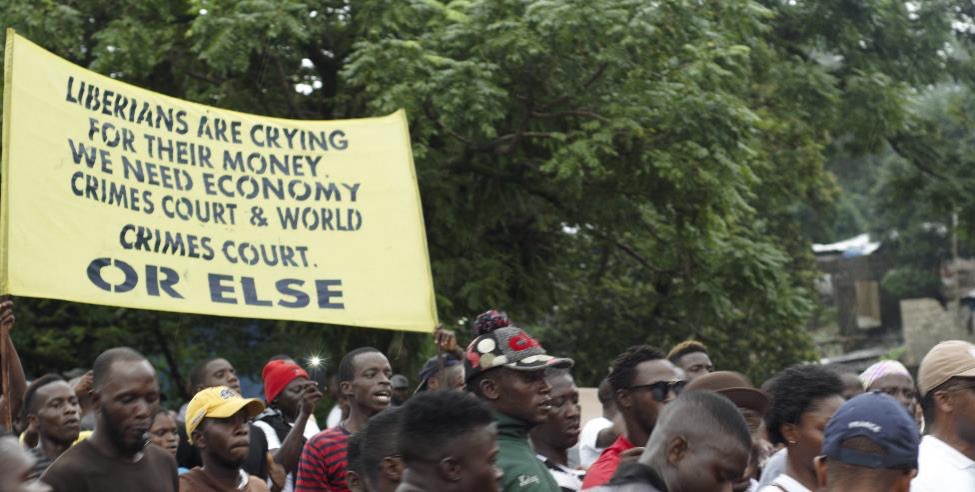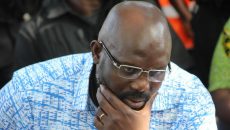A few days ago, I woke up to an email from the director of Social Impact at my school: “Wainright: Stop by the Lab when you get a chance. I have an article for you on Liberia from today’s New York Times.â€
My friend Jerry, who has worked for over 40 years in social entrepreneurship and economic development in the U.S., the Caribbean, and Africa, has developed a deep interest in Liberia since our first interaction about four weeks ago.
We have had conversations on topics ranging from politics and governance, peace and security, education and youth development, and business. Since then, he has been researching about the country, and we have even been discussing possible partnerships to begin some work in Liberia.
Prior to receiving his email, I had been following the “missing billions†situation on social media and through online media outlets like FrontPage Africa and The Bush Chicken. Honestly, I am still confused about what exactly happened and where the case currently is. But I am even more worried.
While Jerry and other potential partners I have spoken with are satisfied with the current state of the country and certain that they can do some work there, I still fear that disturbing news of inappropriate activities from the country could terminate this possibility.
Being informed that there was a New York Times article about the situation only intensified my fear. I knew for sure the news was spreading exponentially. I briskly prepared and headed over to Jerry’s office to pick up the article and talk about the situation.
Within the four minutes I walked from my room to Jerry’s, I pondered how I could possibly narrate this situation in a way that would seem different from what may have been written already. He handed over the article to me and with curiosity asked, “What do you make of this and do you think it has the potential to cause any serious problem back home?â€
After a brief conversation about the situation and the assurance that the situation will transition into nothing more than intellectual engagements between the government and the opposition, he wanted to know my position on the president and his ability to address this problem and future issues.
My conversation with Jerry has left me curious about how economic development in developing countries, especially post-war nations like Liberia, can be affected greatly by how its stories are narrated by the media.
Interestingly, most articles published by global news networks like the article published in the New York Times by Clair MacDougall cite citizens’ social media posts and comments to validate their write-ups. In the opening paragraph, she wrote, “Containers full of newly minted currency worth more than $100 million have gone missing in Liberia, setting off finger-pointing and travel bans as officials puzzle over the mystery in one of the poorest countries in the world.â€
It is not a secret that Liberia is one of the world’s poorest countries, but the juxtaposition of this reference next to the missing money only seems to validate why the country remains poor – lack of credibility and effective systems to ensure the proper management of its resources and services.
I believe these are all the reasons we lack wide scale investments and sustainable programs. This is the same reason why foreign “experts†are always sent to manage the funds donated by international partners. This is why concession companies do not make further investments in factories and manufacturing facilities. They do not trust that the people are responsible enough.
In my experience over the last few weeks, investors and development researching moving into Liberia find information in the news that influences the approaches they adopt for their work.
Once again, Liberia is dominating the international news. What is even more disturbing about the situation is how there have been several contradictions about the case from government officials directly involved with the situation.
There is a lot to learn from this situation and a lot more work to do. It is time President George Weah reflects deeply on where he is as a president and what his role should be in managing the country.
And like my friend Jerry, people everywhere in the world are looking up to him to change the narrative. The presidency requires combining an array of knowledge, experience, critical thinking, and analysis, in addition to having a constructive and decent team. This is a huge task the president has, and the high expectations make it even more difficult. It is either now or never.
Effective management of information is critical here. We cannot afford to have a case where every official is a government spokesperson and the designated spokespersons are executing tasks somehow unrelated to their main functions.
I have experienced how Liberia is admired internationally, greatly influenced by George Weah, the former incredible and achieved soccer player being its president.
However, if the people responsible for influencing our global image cannot effectively narrate its stories – if the government’s actions and activities cannot inspire positive stories – we will continue to remain the “co-authors of our misfortune,†along with the international media, as Professor P.L.O. Lumumba best describes.
Featured photo by Jefferson Krua



